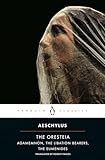The books I remember most clearly from this year are, perhaps unsurprisingly, the books I spent the most time reading. In the months after graduating with my BA in English, I’ve had to adjust to a slower, more leisurely reading pace — without the terror of a morning class it’s become near impossible to force myself through 200 pages of Anna Karenina in a single night, and so my readings have begun to stretch into longer (and, it must be said, more enjoyable) projects.
 The first and most important of these drawn-out readings was St. Augustine’s Confessions, which I selected at random from a used bookstore and began the week after graduation. I was struck — am still struck — by how modern the writing feels, at once straightforward and exquisitely lyric, speaking with both confidence and vulnerability. The confessional aspect of nonfiction writing, especially memoir, has been the subject of considerable discussion, and reading slowly — very, very slowly — through this original work of profound self-exposure has given the modern conversation a new depth for me. It’s also been a lesson in voice, address, and purpose — after all, Augustine is very clear about who and what he’s writing his Confessions for — and in the power of literature to connect personalities across time and experience, since I feel unaccountably close to this 4th-century African bishop.
The first and most important of these drawn-out readings was St. Augustine’s Confessions, which I selected at random from a used bookstore and began the week after graduation. I was struck — am still struck — by how modern the writing feels, at once straightforward and exquisitely lyric, speaking with both confidence and vulnerability. The confessional aspect of nonfiction writing, especially memoir, has been the subject of considerable discussion, and reading slowly — very, very slowly — through this original work of profound self-exposure has given the modern conversation a new depth for me. It’s also been a lesson in voice, address, and purpose — after all, Augustine is very clear about who and what he’s writing his Confessions for — and in the power of literature to connect personalities across time and experience, since I feel unaccountably close to this 4th-century African bishop.
 Another favorite work this year predates even the Confessions, perhaps an indication that reading contemporary literature should be my New Year’s resolution. But ever since I was assigned The Oresteia in my final university literature course I haven’t been able to get it out of my head. The dark chaos of Agamemnon has been especially powerful, and I’ve fallen wholly in love with its tangles of language and meaning, with the unexplainable contradictions at the heart of the play and with Cassandra, the woman doomed to be forever misunderstood. The trilogy as a whole has its charms, and the emphasis Aeschylus placed on the possibility of progress, of clarity arising from chaos, has been comforting as I work to shape a life out of the usual post-grad 20-something confusion of my present circumstances. Even so, that chaos has a kind of beauty — something the Agamemnon both celebrates and fears, as do I.
Another favorite work this year predates even the Confessions, perhaps an indication that reading contemporary literature should be my New Year’s resolution. But ever since I was assigned The Oresteia in my final university literature course I haven’t been able to get it out of my head. The dark chaos of Agamemnon has been especially powerful, and I’ve fallen wholly in love with its tangles of language and meaning, with the unexplainable contradictions at the heart of the play and with Cassandra, the woman doomed to be forever misunderstood. The trilogy as a whole has its charms, and the emphasis Aeschylus placed on the possibility of progress, of clarity arising from chaos, has been comforting as I work to shape a life out of the usual post-grad 20-something confusion of my present circumstances. Even so, that chaos has a kind of beauty — something the Agamemnon both celebrates and fears, as do I.
More from A Year in Reading 2014
Don’t miss: A Year in Reading 2013, 2012, 2011, 2010, 2009, 2008, 2007, 2006, 2005
The good stuff: The Millions’ Notable articles
The motherlode: The Millions’ Books and Reviews
Like what you see? Learn about 5 insanely easy ways to Support The Millions, and follow The Millions on Twitter, Facebook, Tumblr.









